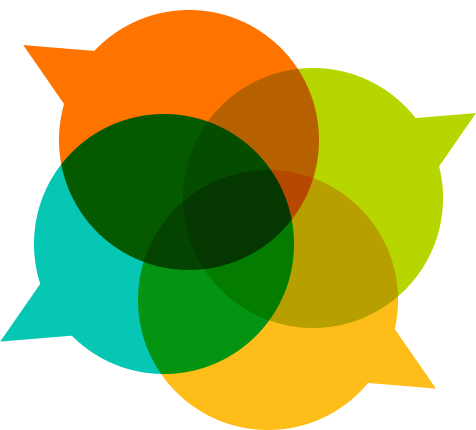Peer 2 Peer University (we mostly say P2PU) is a distributed organization comprised of individuals who seek to create equitable, empowering, and liberating alternatives to mainstream higher education. We have team members in the US, Canada and South Africa, and collaboration partners in Kenya, Uganda, Zambia, France, Germany, Denmark, Romania, Poland and Finland (and we would love to work with you, too!).
We are structured as a California-based 501c3 non-profit organization. The majority of our funding comes from philanthropic and federal funding: we are supported by the Institute of Museum and Library Services, European Union Erasmus+, Open Society Foundations, Siegel Family Endowment, and Knight Foundation. Additionally, we offer a variety of services to organizations that are looking to develop thriving nonformal education communities.
P2PU is driven by the values of peer learning, community, and equity. To this end, our work manifests itself in learning circles: lightly-facilitated study groups for people who want to learn together, in-person. These small, community-based workshops and meetings aim to help people better take advantage of free, online learning resources in a local context, and prioritize discussion and reflection over solitary learning.
Beyond learning circles, P2PU advocates for a variety of causes that make free, emancipatory learning practices possible. We participate in the development and curation of openly licensed resources (OER) using our tool Course in a Box and document high-quality online learning resources on our courses page. We develop blended learning activities that support peer learning in a variety of contexts, and work with our partners to develop facilitation training resources that can be used by anybody.
We strive to model our educational values in our organizational structure; as such, we set goals and make decisions collectively as a community. Anybody is welcome to participate in the governance of our organization through our community calls. Our governance guidelines, annual goals, and organizational policies (as well as all source code) are on Github.
To read more about our history and values, visit our about page.
To get started with learning circles, visit our facilitation hub.
